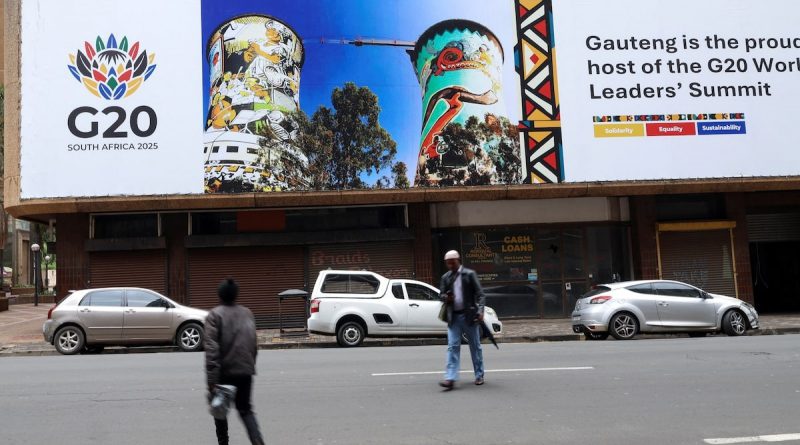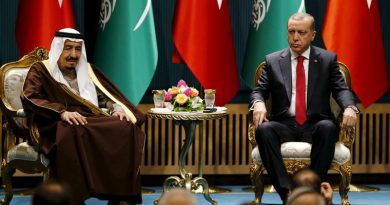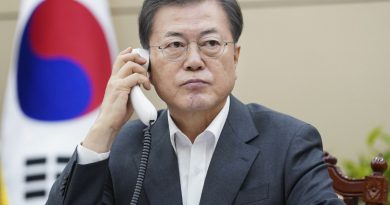South Africa Hosts G20 as U.S. Skips Summit, Creating New Diplomatic Dynamics
Johannesburg — The absence of U.S. President Donald Trump at the upcoming G20 summit is shaping the event in unexpected ways, giving South Africa an opening to guide discussions without the influence of one of the world’s most powerful political figures.
As Johannesburg prepares to host the first G20 summit ever held on African soil, global attention is focused on how leaders will navigate growing geopolitical tensions and differing national priorities.
Washington announced it would not attend, citing concerns about South Africa’s domestic policies, which the U.S. administration claims disadvantage white citizens.
The host country has rejected these allegations, framing the summit instead as a moment for Africa to demonstrate leadership and encourage cooperation among diverse economies.
South Africa has designed an agenda centred on development-driven priorities such as climate resilience, support for low-income nations, sustainable energy transitions and better financial terms for countries carrying heavy debt burdens.
Officials say these themes reflect the continent’s needs, particularly as extreme weather events intensify and the demand for critical minerals grows worldwide.
The symbolism of Trump’s empty chair remains unavoidable, particularly because South African President Cyril Ramaphosa is expected to hand over G20 leadership to the next host — the United States.
Ramaphosa has acknowledged the awkwardness of the moment, saying he will complete the ceremonial handover regardless of Trump’s absence and deliver remarks aimed at continuing diplomatic engagement.
The absence of several other leaders is reshaping the summit as well. Argentina’s President Javier Milei will not attend due to ideological differences with the agenda, while Russia’s Vladimir Putin will remain absent because of the International Criminal Court warrant issued against him.
China will send Premier Li Qiang as its representative, signaling participation without elevating the diplomatic profile as high as a presidential visit.
European countries, along with China and other major economies, are expected to use the opportunity to increase their influence and shape discussions that traditionally depend heavily on U.S. involvement.
Analysts suggest that the U.S. withdrawal could create a temporary leadership gap, allowing other powers to take a more prominent role in shaping global cooperation strategies.
Some experts argue that without Washington’s often oppositional stance in recent years, negotiators may find it easier to seek common ground on issues such as debt sustainability and climate finance.
Others note that the absence of a potentially confrontational American delegation might reduce tensions and allow the hosts to keep the focus on African priorities. However, concerns remain that any outcomes will carry less weight if the United States is not engaged in the process.
French President Emmanuel Macron is expected to highlight cooperation with African nations on energy transition and economic partnerships.
Several governments are exploring the possibility of trade agreements and mineral-related investments on the sidelines of the summit.
Africa’s immense mineral wealth and its young, rapidly growing population position the continent as a key player in the future global economy.
The presence of an African Union delegation reinforces the hosts’ effort to secure fairer terms in mineral extraction, infrastructure development, and energy transition initiatives.
Despite the optimism surrounding Africa’s central role, some analysts believe the summit will still face challenges linked to long-standing divisions among G20 members.
In recent years, disagreements over climate responsibility, financial reforms and geopolitical rivalries have limited the group’s ability to produce strong, unified statements.
The U.S. had previously indicated it would oppose any language referencing climate change in the final communiqué, making progress difficult even before its decision not to attend. Observers note that global forums have struggled to maintain momentum as major powers adopt more unilateral policies.
For South Africa, the summit remains an opportunity to highlight the importance of multilateral cooperation, even as the international environment becomes increasingly fragmented.
Whether the meeting results in significant agreements or only cautious statements, it marks a historic moment for Africa as it hosts one of the world’s most influential political and economic gatherings.



